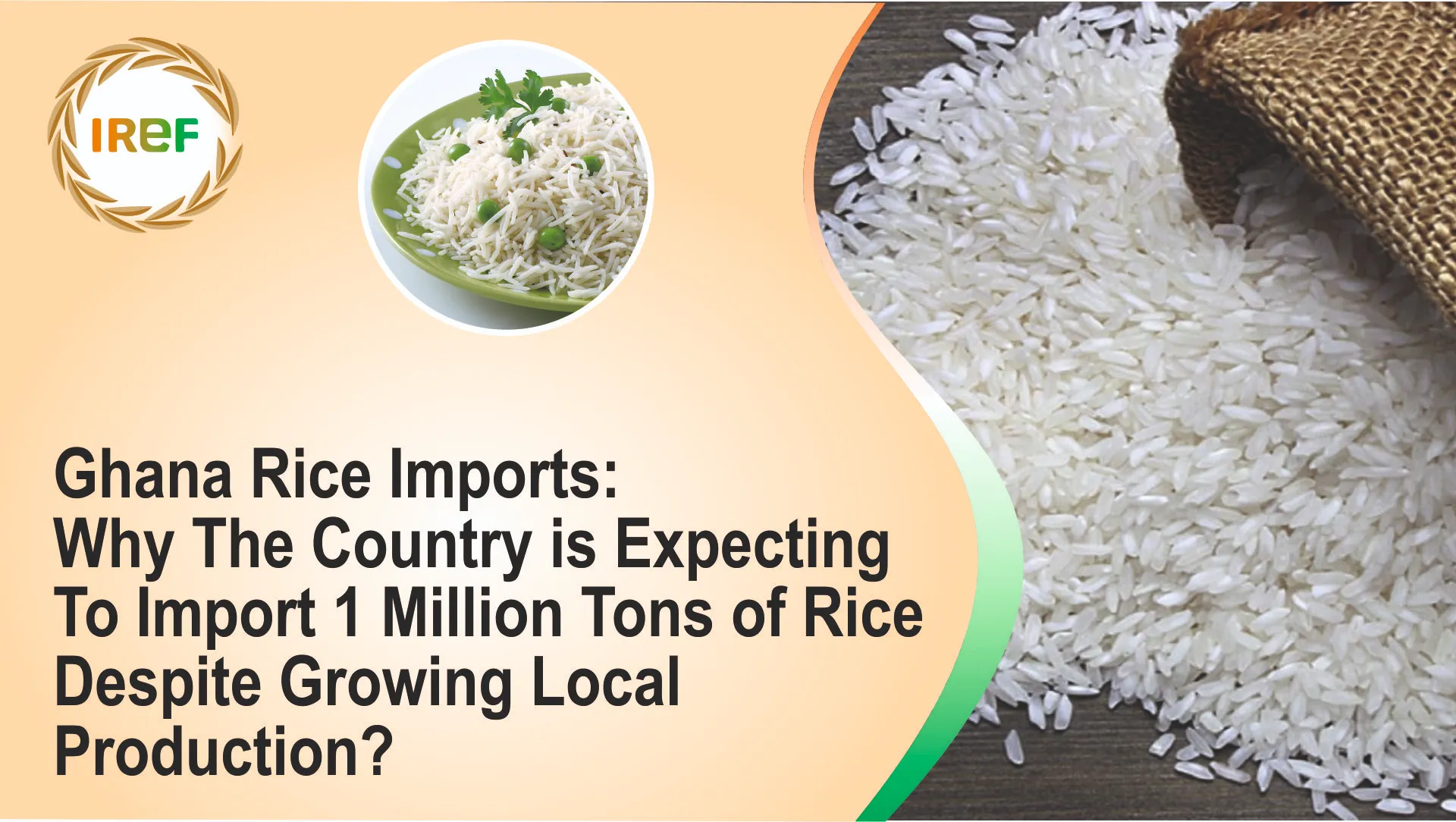Ghana Rice Imports: Why the country is expecting to import 1 million tons of rice Despite Growing Local Production?

Rice is a staple food in Ghana and is ranked as the second significant cereal after maize. The Consumption of rice is high in urban areas. However, the country relies heavily on rice imports to meet the local demand. Ghana is expected to import around 1 million metric tonnes of rice during the 2025-2026 season. Surprisingly, this is more than half of all the rice the country needs.
Rice Production in Ghana
Even though Ghana is producing more rice domestically, nearly 900,000 metric tons, which is an 18% increase but the country is still not enough to meet demand. This increase is due to the improved weather conditions, resulting in more farmers growing rice. Notably, since the population is growing (over 34.6 million people) and eating habits are changing, people in Ghana are consuming rice now, such as over 1.8 million metric tonnes. Undoubtedly, Rice is Ghana’s second significant cereal after maize (corn), and on average, each person eats 51 kilograms of rice per year.
Interestingly, most of the rice sold in Ghana (about 70%) is imported from countries including Vietnam, India, and Thailand. Imported rice is often preferred as it’s cheaper and considered better quality, particularly in cities.
Apparently, local farmers are battling with problems such as poor irrigation (water supply), inadequate machines, and limited processing facilities, making it hard for the country to compete with cheaper imported rice.
Rice Price Trends and Fluctuations in Ghana
Rice prices in Ghana have witnessed fluctuations recently. For instance, between March 2024 and January 2025, the price of a 100kg bag went up from GH¢200 (about $18) to GH¢650 (about $59). Prices dropped to GH¢400 ($36) by March 2025 but are still twice as high as the previous year. The weather forecast warns that 2025 might have less rainfall and longer dry periods, which could affect local rice farming.
The government is trying to help by giving farmers seeds and adding taxes on imported rice, but local rice is still expensive and often not consistent in quality, prompting many people to still buy imported rice.
Eventually, unless Ghana improves irrigation, machinery, and processing for rice, it will continue to rely on imports, which makes the country prone to vulnerability to global price changes and currency problems.